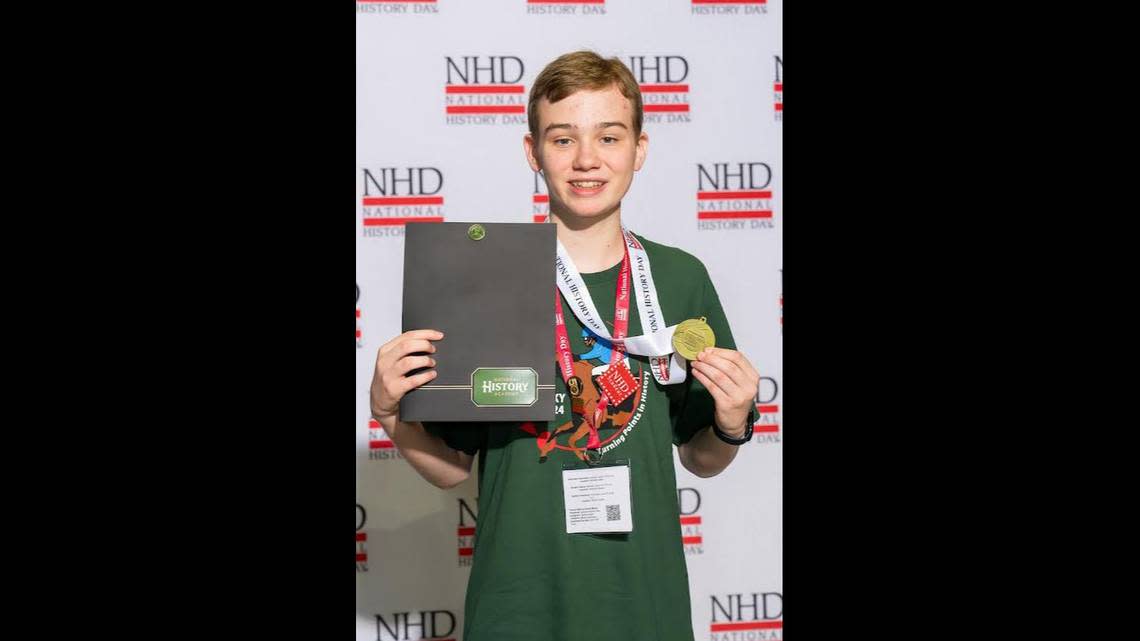Getting to ask filmmaker Ken Burns a question excited award-winning Fayette student

Paul Laurence Dunbar High School student Jack Gill was honored last week to win a national history award for his documentary and just as excited to ask a question of award-winning filmmaker Ken Burns in the process.
The Lexington rising 10th grader won first place in the Senior (high school) Individual Documentary category at National History Day on June 13 in College Park, Maryland. It’s an annual national competition where students present original historical research projects to a panel of judges for prizes.
Jack’s winning project is titled, “A Theory, A Paper, A Turning Point: Claude Shannon’s 1948 “Mathematical Theory of Communication.”
“Winning the National History Day award for Senior Individual Documentary has been amazing; it is such an honor, “ Jack told the Herald-Leader.
“A few days before the award ceremony ... before I even knew I was a finalist, I was invited to attend a lecture event with Ken Burns,” Jack said. “I was able to ask him a question about his motivations and received a wonderful, thoughtful, heartfelt response from Ken Burns talking about my question. That was unique and exciting.”
Burns, who attended the national contest to congratulate the students, said in a National History Day statement, “History is not just how we understand the past, it helps us re-imagine the future. These students have shown once again that our history is critical to our sense of who we are as a people. I applaud all of them — and their teachers — for the extraordinary work they’ve done.”
Nearly 3,000 students from across the country presented history projects in five categories — documentary, exhibit, performance, website and paper — focused on the theme of turning points in history. Jack’s project was a documentary.
More than 500,000 middle and high school students participated in National History Day’s local, regional, state and national competitions this year. Gill said he was “thrilled” his project on Claude Shannon’s transformative 1948 paper was recognized at the national level.
“Shannon’s work revolutionized how we understand and process information, impacting nearly every aspect of modern life, yet hardly anyone I asked had heard of him, and those who had, possessed only a passing recollection of his name,” Jack said.
“As a student in the Math Science Technology Center at Paul Laurence Dunbar High School, I was drawn to a topic that bridges my interests in math, science, and history. This project allowed me to explore the profound impact of Shannon’s theories and show how math has influenced our lives. “
Jack said Shannon’s 1948 paper “laid the foundation for the digital information age we live in today, an age where information, good and bad, is so readily available.”
“I’m happy that because of my documentary, at least a few more people have heard of him,” he said.
Winning the award required extensive research. “I just kept working slowly; I knew if I stopped, I might not be able to get started again,” Jack said.
Jack said he thanks his parents and teachers for helping him develop thinking and reasoning skills, and supporting him.
He said participating in National History Day for the past three years has shown him the power of research and how to organize and present evidence.
“History is not simple nor pretty, but it is richly interesting,” the Lexington student said.


